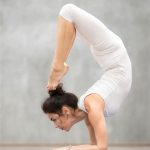Mastering Yoga: Unlocking Advanced Levels for Experienced Practitioners
Yoga, once a niche practice, has now become a worldwide phenomenon with millions of practitioners seeking the physical, mental, and spiritual benefits it offers. For experienced yogis, there comes a time when basic postures and flows are no longer challenging. At this point, many look for ways to deepen their practice, transcend plateaus, and achieve mastery. This article delves into how seasoned practitioners can take their yoga to new heights, addressing advanced techniques, mental frameworks, and holistic approaches to achieving mastery.
Introduction
Whether you’ve been practicing yoga for years or have recently developed a committed routine, you might reach a stage where progression slows. Mastering yoga isn’t just about advanced physical postures; it’s about the integration of the mind, body, and spirit. This guide covers techniques, historical wisdom, practical applications, and advanced methodologies to help experienced yogis push past limits and find deeper connections in their practice.
Key Concepts
Achieving yoga mastery encompasses several intertwined principles that go beyond physical strength and flexibility. Understanding these core concepts can enhance your practice:
- Asana (Physical Postures): Moving beyond foundational poses to include challenging balances, inversions, and complex sequences.
- Pranayama (Breathing Techniques): Harnessing the breath to control energy flow, deepen meditative states, and enhance endurance in postures.
- Drishti (Focus): The point of gaze that sharpens concentration, fostering deeper meditation during physical practice.
- Bandhas (Body Locks): Energy locks that help yogis control subtle energy (prana) and improve body alignment.
- Chakras: Advanced practitioners work on balancing and opening energy centers (chakras) to maintain energetic health.
- Meditation: Beyond physical mastery, true yoga mastery is about mental discipline, awareness, and inner peace.
Historical Context
The roots of yoga go back over 5,000 years, originating in ancient India. The earliest references to yoga can be found in the Rig Veda, one of the oldest sacred texts. Traditionally, yoga was not limited to physical exercise but included mental, moral, and spiritual dimensions.
Yoga was passed down through oral tradition until it was systematized by Patanjali in his Yoga Sutras, where he described the eight limbs of yoga. These limbs, ranging from ethical conduct (yama) to meditation (dhyana), guide advanced practitioners toward self-realization. However, it wasn’t until the 20th century that yoga evolved into the physically focused practice it is today, thanks to influential teachers like Krishnamacharya, B.K.S. Iyengar, and Pattabhi Jois.
Current State Analysis
In the modern world, yoga has become mainstream, with various styles and schools. For advanced practitioners, maintaining progression requires deeper knowledge and specialization. Today’s advanced yogis often gravitate towards specialized styles such as Ashtanga, Power Yoga, or Kundalini, each offering unique paths to mastery.
In recent years, there has also been a growing trend toward integrating yoga with modern neuroscience, biomechanics, and mindfulness practices. This interdisciplinary approach gives practitioners new tools to unlock further levels of body-mind connection. Additionally, experienced yogis increasingly look for retreats and workshops that cater to advanced practices, such as silent meditation retreats or workshops focusing on advanced postures.
Practical Applications
To take your yoga practice to the next level, consider integrating these advanced practices:
- Refining Inversions: Work on complex inversions like the handstand (Adho Mukha Vrksasana) and forearm stand (Pincha Mayurasana) to build upper body strength and balance.
- Advanced Pranayama: Practice Kapalbhati and Bhastrika for breath control and vitality.
- Extended Meditation: Aim to lengthen meditation sessions to 30-60 minutes, focusing on mindfulness, breath awareness, or chakra visualization.
- Dynamic Flows: Explore more complex vinyasa sequences that require high levels of coordination and stamina.
Case Studies
To understand the practical journey toward mastery, let’s examine a few real-life examples:
| Practitioner | Style | Challenges | Solutions |
|---|---|---|---|
| Sarah | Ashtanga | Plateau in stamina during long sequences | Integrated more pranayama and added dynamic warm-ups |
| John | Power Yoga | Difficulty with handstand transitions | Focused on wrist strengthening and bandhas for balance |
| Emily | Iyengar | Struggling with shoulder mobility for inversions | Added daily shoulder-opening exercises and used props |
Stakeholder Analysis
Yoga mastery impacts various stakeholders in different ways. Understanding these relationships can provide insight into how one’s advanced practice affects the broader community:
- Teachers: Advanced practitioners push teachers to offer more tailored guidance and challenge conventional sequences.
- Yoga Studios: Studios are incentivized to provide workshops, retreats, and advanced classes to cater to experienced yogis.
- Beginner Practitioners: Advanced practitioners inspire others but can also create an environment where newer yogis feel intimidated. Offering mentorship helps bridge this gap.
- Researchers: Advanced yogis provide data and insight into the physical and mental benefits of long-term practice, helping refine scientific studies.
Implementation Guidelines
To advance your yoga practice, follow these structured steps:
- Set Clear Goals: Whether it’s achieving a specific pose, improving meditation, or mastering pranayama, define your objectives clearly.
- Consistent Practice: Commit to daily practice with time dedicated to advanced techniques, meditation, and breathwork.
- Seek Expert Guidance: Enroll in workshops, find advanced teachers, or consult with experienced yogis who can guide your progression.
- Integrate Feedback: Use videos, mirrors, or teachers’ insights to continuously refine alignment and technique.
- Prioritize Rest and Recovery: Advanced practice is demanding. Ensure your body recovers with adequate rest, nutrition, and restorative postures.
Ethical Considerations
As yoga mastery often involves pushing both physical and mental limits, ethical considerations become more prominent:
- Non-violence (Ahimsa): Pushing yourself too hard physically or mentally can lead to harm. It is essential to balance ambition with self-care.
- Humility: Advanced practitioners should remain grounded, recognizing that yoga is a lifelong journey, not a destination. Avoid ego-driven pursuits of mastery.
- Inclusivity: Yoga spaces should be welcoming to practitioners of all levels. Advanced yogis should encourage inclusivity rather than foster competition.
Limitations and Future Research
While advanced yoga techniques offer numerous benefits, there are limitations to be mindful of:
- Physical Constraints: Not all bodies are capable of achieving every advanced posture. Flexibility, joint health, and prior injuries can be limiting factors.
- Mental Fatigue: Deepening meditation and mental practices can cause mental fatigue, requiring careful pacing.
- Scientific Research Gaps: While modern research on yoga is expanding, many aspects of advanced practice (e.g., pranayama and meditation’s impact on brainwaves) still lack robust scientific backing.
- Time Commitment: Achieving mastery requires significant time, which may not be feasible for everyone due to personal or professional responsibilities.
Future research should focus on understanding the physiological and psychological impacts of long-term advanced practice, especially in terms of how it affects neuroplasticity, emotional regulation, and longevity. Additionally, more interdisciplinary studies that combine ancient wisdom with modern science could provide insights into the full scope of yoga mastery.
Expert Commentary
As yoga continues to evolve, the pursuit of mastery remains a deeply personal and transformative journey. Experienced practitioners have the opportunity to explore new dimensions








